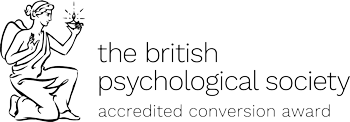This first module will give you all the skills and contexts, both historical and contemporary, to begin your transition to the field of psychology.
We’ll begin by discussing the different perspectives (such as behavioural, cognitive, clinical, etc.) that dominate the field. Through this, you’ll understand what it means to be a psychologist in current times, as well as the impact psychologists have on our day-to-day lives.
Following this, the module will equip you with the fundamental skills needed to conduct scientific research within psychology – which you’ll build on throughout your degree.
.png?width=180&height=222&name=UoP_Study%20Online_Stacked%20(1).png)

.png)







